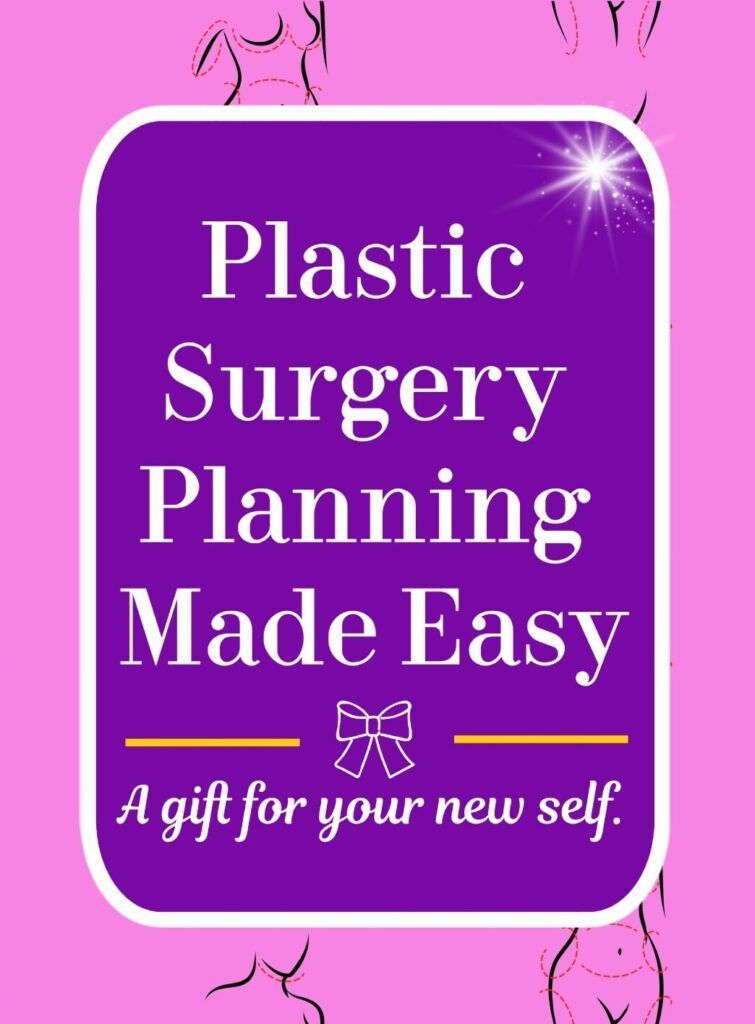Plastic Surgery is becoming one of the most common ways for women and men to contour their bodies. Everyone wants their physical body to match their idea of beauty. While it can increase self-esteem, self-image, and reduce body fat in undesirable places, it is important to take time to evaluate your readiness for plastic surgery. If you choose to move forward, you want to be healthy and fully satisfied at the end of the journey.
Some considerations for determining whether or not plastic surgery is for you today are your overall physical health, mental health, reasons for wanting plastic surgery, and your expectations for your life after surgery.
A healthy lifestyle after surgery is also very important for maintaining post-surgery results. This looks like a commitment to a balanced diet, regular exercise, and annual health and wellness visits with your physicians.
The Body Speaks
If you have been reading reviews and listening to patients who have had plastic surgery, you know that plastic surgeons do a deep dive into your medical history.
They need to know if you have uncontrolled diabetes or high blood pressure, or are taking prescribed medicines like anticoagulants and birth control. In addition, it is important to disclose recent surgeries and whether you smoke nicotine-containing products.
Honesty is Crucial
Most surgeons will order laboratory tests and perform physical exams to determine your body’s readiness for plastic surgery. It is important you be honest with them about your past medical history to determine the next steps. These details are critical because they play a major role in determining whether or not you will experience complications during or after surgery. Complications could be life-changing or life-threatening.
Some complications include delayed wound healing, tissue, and systemic infections, and blood clotting often referred to as venous thromboembolism (VTE). VTE includes deep vein thrombosis (blood clots in the arm, thigh, lower leg, or pelvis) and pulmonary embolism (blood clots that travel to the lungs and block blood flow). Pulmonary embolism is one of the leading causes of death in plastic surgery patients. Below are some risk factors for complications.
| Some Risk Factors | Possible Complications |
| BMI >30 | Post-operative infections, hematoma, seroma, poor wound healing, blood clotting (VTE) |
| Current Nicotine or Cigarette Use | Post-operative infections, poor wound healing, hematoma, seroma, excessive bruising and discoloration of the skin, blood clotting (VTE) |
| Diabetes | Post-operative infections, poor wound healing |
| Hypertension | Hematoma, seroma |
| Anemia | Heart, organ, and tissue damage, excess swelling |
| Immunosuppression | Post-operative infections, poor wound healing |
| Recent Surgery | Post-operative infections |
| Antidepressant Medications (some) | Abnormal bleeding, changes in heart rate |
| Estrogen-containing Medications | Abnormal blood clotting or VTE |
| Anticoagulant Medications | Abnormal bleeding, hematoma |
| Steroid Medications | Post-operative infections, poor wound healing |
| Prescribed Stimulants/ Non-prescribed Stimulants | Increased blood pressure and heart rate |
| OTC Medications (https://www.uclahealth.org/plasticsurgery/medications-to-avoid-before-surgery) | Various interactions |
Everyday plastic surgeons encounter patients who have been planning and preparing for their plastic surgery for a long time. They understand the time and the financial investments made in order to get to the consultation. However, the plastic surgeon has a responsibility to ensure your safety throughout the journey. To be clear, they must take all necessary steps to avoid preventable complications.
Mind and Body
According to the National Institute of Mental Health, approximately one in five Americans suffers from a mental health condition. That’s about 21% of Americans. Therefore, it is safe to assume that some patients who are considering plastic surgery to improve their life satisfaction and body image will present to a plastic surgeon with a mental health condition. Mental health conditions are either mild, moderate, or severe mental, behavioral or emotional conditions that have been diagnosed by a mental health provider.
Have the Conversation with Your Plastic Surgeon
It’s important to discuss your mental health with your plastic surgeon. There are many resources available for patients with mental health conditions that can help them achieve desired outcomes. They include pre-surgery care plans for lifestyle and prescription medication adjustments, more aggressive aftercare to prevent post-surgery hospitalizations, and referrals to mental health providers. Additionally, they can include more conversations to improve the patient’s understanding of post-surgery expectations.
Avoid Drug Interactions in Plastic Surgery
Doctors are aware that patients diagnosed with mental health conditions are often on prescribed medications. Some of these medications can interact with the anesthesia needed for surgery. Additionally, they are aware that some patients with mental health conditions smoke or use illegal substances. Smoking can delay the wound healing process and increase the chances of other complications. Some illegal substances can increase the chances for more severe complications and even death.
If you have a diagnosed mental health condition, conversations with your surgeon about your mental health and care plans specifically for patients with conditions like yours reduce the possibility of preventable complications, post-surgery dissatisfaction with the procedure, worsening of the mental health condition, and hospitalizations due to poor aftercare.
For more resources or information on mental health, click this link to the National Institute of Mental Health or talk to your healthcare provider.
Why Plastic Surgery? Life Happens
From the moment you began telling your family and closest friends about your desire to have plastic surgery, you may have been asked, “Why do you want to change your body?” Like many patients, you have probably asked yourself the same question.
As we age, the body gets older and life happens. Children come into our lives, our hormones change, and our metabolism decreases. Some of the curves and shapes we knew as young men and women turned into rolls and flaps. This not only affects our self-esteem and self-image but also how we interact with the world around us. If you are looking to restore your curves and shapes, with a few enhancements, you are not alone.
Motivation and Expectations for Plastic Surgery
The popularity of plastic surgery is increasing. We are constantly surrounded by images of celebrities and everyday men and women who have taken the journey and gotten great results. But, please note. The plastic surgeon is not a magician and though he is trained to contour the body, it is unrealistic to expect that he will be able to make you look like someone else.
Specific measurements and celebrity photos are guides that help the surgeon understand what you want, but your body is the masterpiece and that is what he has to work with. If you are looking to have plastic surgery, the reason why has to be meaningful for you. Surely, you have to be in search of the best version of yourself.
It is ok to have more self-esteem, to see yourself as beautiful, and to be happy with the decision you made to have plastic surgery. At the end of the day, your happiness is what matters and your decisions get you there.
However, if your expectations are unrealistic, you are having surgery to please other people, or you are unable to see your body as it really is, you are headed for disappointment. You may need to reconsider your decision to move forward with plastic surgery.
Lifestyle Choices after Plastic Surgery
After plastic surgery, you have big decisions to make that address your diet and exercise. You will receive a fresh start. In order to maintain the results, you have to eat foods that support health and avoid foods that helped you get to the plastic surgeon. In addition, regular exercise will support a healthy heart, and as you desire, a healthy weight. Certainly, regular doctor visits for physicals and check-ins are necessary for deep dives into physical and mental health and support overall wellness. CLICK HERE to learn more about living with diabetes.
To learn more about maintaining a healthy lifestyle, click the link https://www.myplate.gov/ from the US Department of Agriculture.
To Wrap it All Up
When evaluating your readiness for plastic surgery, it is important to consider your body’s overall health, your mental health, your motivation and expectations, and your willingness to do what it takes to maintain the results.
It seems like a lot, but plastic surgery is a big decision that will affect your future life. It is a journey, and in the end, you want to be fully satisfied and glad you did it.






